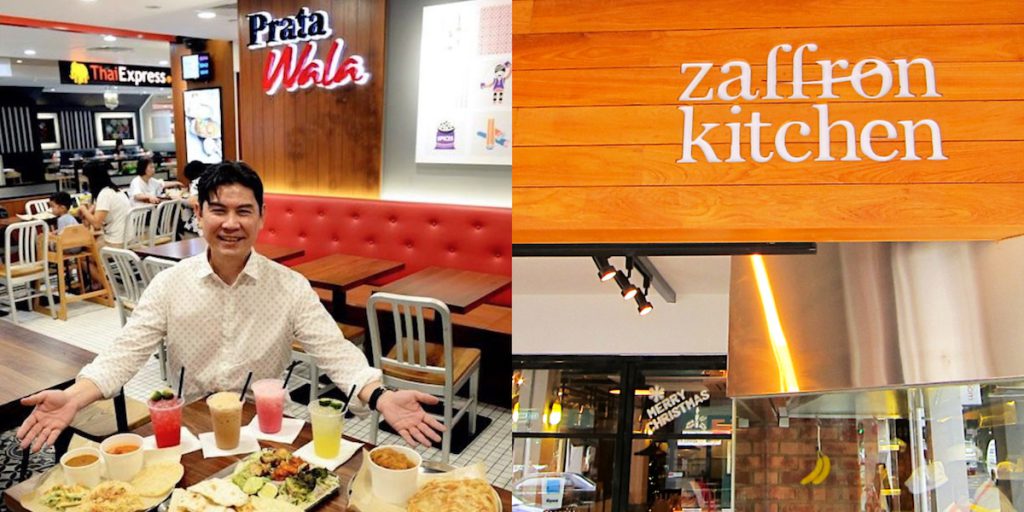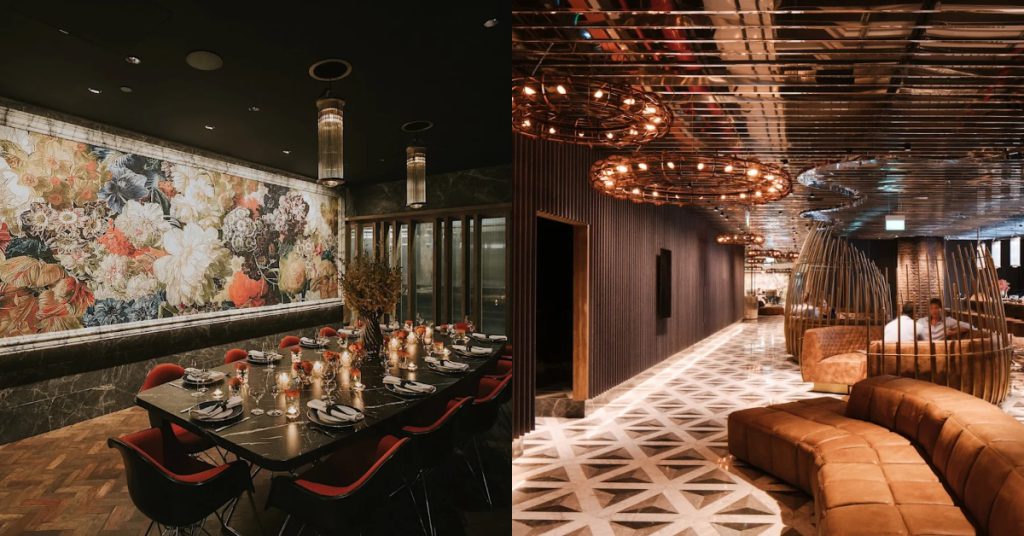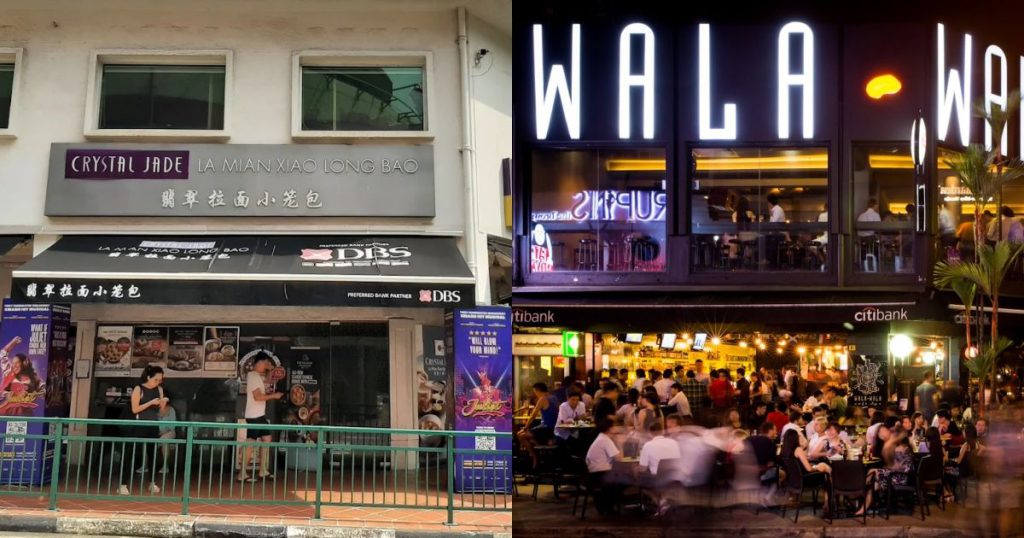Age is really just a number for Joseph Lee.
The 61-year-old holds a business degree from National University Singapore (NUS) and is now pursuing an executive masters in the same field.
When he was still an undergraduate, Joseph already embarked on an entrepreneurial journey.
He started off with two small businesses offering tuition and photography services, and later got involved in manufacturing plastic containers, organising exhibitions, trading and distributing foodstuff, as well as tent rentals.
For the past 12 years till now, he has been involved in the F&B industry, dealing with restaurants and franchising, food processing, and catering.
At one point of time, he was even hailed as the “Gummy King of Southeast Asia” for supplying gummy bears to retail giants like 7-Eleven.
He has ran nine businesses to date and is currently best known as the director of First Gourmet, which is behind popular eateries like Prata Wala, Michelin-guide listed Zaffron Kitchen, Pavilion Banana Leaf, Ottoman Kebab & Grill, and Wimi Thai Coconut Ice Cream.
The firm is part of the multi award-winning FG Culinary Group, which owns a halal factory as well as a catering arm.
Not A Restauranteur, But An “Opportunistic Entrepreneur”
One recurring trend for his string of F&B brands is that most of them specialise in Indian cuisine.
Despite being a Chinese, Joseph is a self-professed lover of the Indian cuisine. According to a separate video interview, his favourite is prata and mutton curry.
Albeit a foodie, Joseph said he’s not a restauranteur.
I am more of an opportunistic entrepreneur and also a beneficiary of circumstances.
Through a series of events, I got involved in a food stall which eventually led to the establishment of Prata Wala’s first restaurant. There was a market need for an Indian eatery at the mall, so we responded.
– Joseph Lee, founder of Prata Wala
He set out to hire Indian cooks and that’s essentially how Prata Wala came about. For those unacquainted, Prata Wala is a F&B chain that specialises in Halal-certified authentic North and South Indian cuisine.

He makes it a point to only hire Indian chefs to retain the food’s authenticity although this posed manpower problems for the business.
On top of the ever-restrictive (foreign labour) quota, bearing in mind that Singapore is a Chinese-majority country, finding Indian chefs is an increasing challenge.
– Joseph Lee, founder of Prata Wala
From One To Five Outlets In S’pore
Joseph refused to disclose how much he invested to open Prata Wala’s first outlet in Jurong Point in 2009, but revealed that it broke even in just a year.
In the early days, Joseph was “heavily involved in the day-to-day operations”, to the extent that he appointed himself as the chief dishwasher.
Business was brisk and customer response was “overwhelming”, said Joseph, which spurred him to continually open more stores.

At its peak, there were five Prata Wala restaurants but there are currently four restaurants islandwide.
In Singapore, they are looking to expand Prata Wala with the launch of an ‘Express’ stall concept for food courts. By the end of this year, it aims to open three Prata Wala Express stalls and perhaps another three to six by next year.
They have also recently signed its first local franchisee agreement and is now toying with the idea of going global.
The way forward for scaling up Prata Wala restaurants is through franchising overseas. Currently, there are (ongoing) discussions for overseas franchises in UK, Indonesia, Australia and Japan.
– Joseph Lee, founder of Prata Wala
He added that Prata Wala has grown on a CAGR (compound annual growth rate) of between 20% and 40%.
Although there were a couple of years where growth plateaued, they are now back on the growth track since the last quarter of this year.
His F&B Business Is More Than Just Restaurants
In terms of other business challenges, Joseph shared that he struggled with developing the operating systems and the central kitchen.
“Although we have live cooking at the outlet, many of our products are prepared at the central kitchen to ensure standardisation and to reduce chef dependency,” he explained.
The central kitchen has since grown into a standalone company called FG Food Industries Pte Ltd, which supplies food to hotels, caterers, and other restaurants.

While their current game plan is to supply food, they aim to grow with ready meals. Specifically, they are looking at launching home-brand frozen biryani and prata products at the supermarket.
It also has a catering arm called Delizio Catering Pte Ltd, which offers buffet and institutional catering of local and international cuisine.
As food trends fade and die, many F&B entrepreneurs refuse to jump on the fad bandwagon. Joseph thinks differently — “the trend is your friend,” he said.
“(We aim to remain competitive) by constantly innovating and (being) forward-looking not only in terms of restaurant operations, but also in terms of engaging with our customers.”
We need to be abreast of current developments and future trends. Through FG Food Industries, we supply bulk ready-to-use food for other F&B operators but the growth game plan is ready meals.
– Joseph Lee, founder of Prata Wala
In future, they are looking to also explore the exports of ready meals, e-commerce and vending operations in Singapore.
Prata Wala is also looking at integrating technology in their operations, particularly mobile ordering.
“Businesses Need Time To Mature”
Joseph is a very humble man, hesitating to call himself successful as he openly shares about his fair share of failures.
“Success is a result of many factors, among which is ‘time’. All businesses need time to mature. The question for the entrepreneur is whether he/she has the resources and resilience to persevere and get past the steep learning curve,” said Joseph.
In order to shorten the learning curve, try not to start a business you know nothing about no matter how good the idea is. It’s always better to do a business which one has know-how, market knowledge and strategic alliances.
If you are going to be in a partnership with others, get a partnership agreement in place. It can be critical.
– Joseph Lee, founder of Prata Wala
When asked to share a piece of business advice to other entrepreneurs, Joseph said that he had an “indelible memory” of his first marketing lecture at the National University of Singapore years back.
“The marketing professor asked: ‘What are the three most important things about the real estate business? The answer is location, location, location. He went on to ask: ‘What are three most important things in marketing? The answer is differentiation, differentiation, differentiation.”
(You need to) be different (and) stand out. Aspiring entrepreneurs, please remember that. It has helped me immeasurably.
– Joseph Lee, founder of Prata Wala
Featured Image Credit: Khalid Baba via Berita Harian / Sokhwee via Cargo Collective














